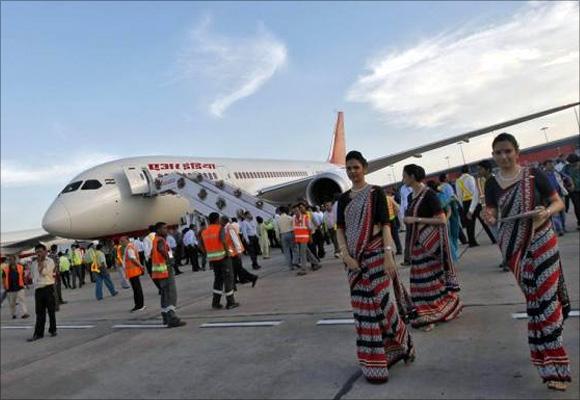
The Modi government in its first 90 days hasn't really spelt out its plan for Air India except stating that it wouldn't be privatised, notes Jitendra Bhargava.
It is no state secret that successive Indian governments have conventionally been loathe to taking timely decisions.
What makes it ironic from the governance perspective is that no cost is ever put on procrastination or anyone held accountable, even as the nation suffers.
The delay, inexplicable or otherwise, has thus become a norm.
Prime Minister Narendra Modi's recent diktat to bureaucrats for setting deadlines and insisting on time-bound decision-making can, thus, be described as a significant departure from the past and a major watershed in our governance system.
While there are numerous cases of stupendous delays that can be cited as instances, one that merits recapitulation relates to Air India, on which the government will sooner or later have to take a call because the national carrier is running out of options.
Please ...
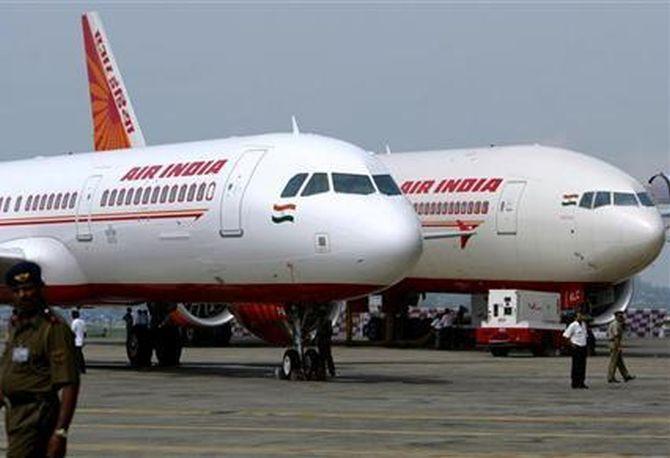
It is often said man does not learn from history and most people, therefore, constantly engage themselves in the same experimentation like nominating private sector stalwarts on the Air India board or changing the chairman, though the results have been zilch.
Even so, it may be worthwhile to reflect on what has been done in the past to resurrect the airline that was "once upon a time" the pride of the nation.
The introspection of past endeavours demonstrates two glaring things - one, the gradual decline in our bureaucracy's capability and commitment, and two, that the country lacks the requisite expertise in aviation among its decision-makers.
Air India's structural and systemic weaknesses were recognised decades ago.
...
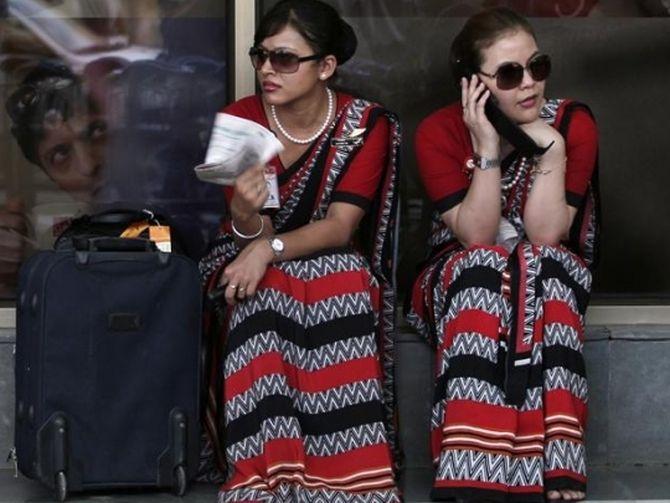
In fact, in 1997, Air India was one of the first public sector companies to be referred to the newly constituted Disinvestment Commission of India (DC).
The Commission headed by G V Ramakrishna, had D Basu, retired chairman of the State Bank of India, Suresh Tendulkar, an eminent economist, who later became chairman of the then prime minister's economic council, and M R Nair, chairman of Steel Authority of India, as members.
The commission had a study conducted by reputed consultants on the condition of Air India and also met the airline's management.
The eighth report of the commission was presented to the government in August 1998 - a good 26 years ago.
...
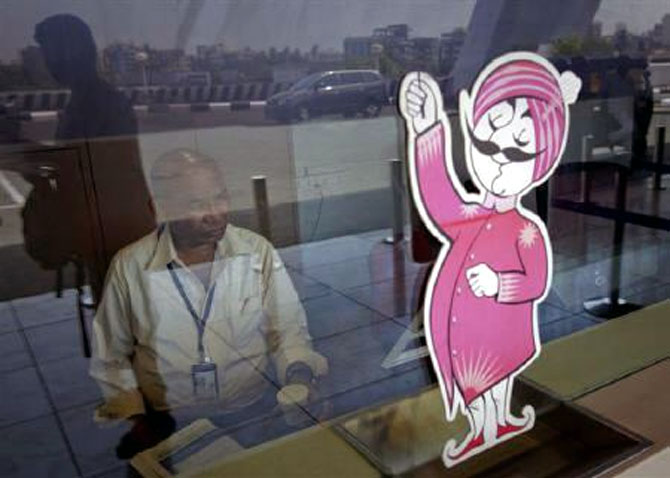
The DC considered four options for restructuring Air India and the one that was eventually recommended for preventing the airline from becoming sick, and ensuring a turnaround in its operations, was: the government should immediately provide Rs 1,000 crore (Rs 10 billion) as equity, according to Air India estimates, for the financial restructuring of the airline, to help raise its paid-up share capital to Rs 1,154 crore (Rs 11.54 billion) from a paltry Rs 154 crore (Rs 1.54 billion) equity infused by the government several decades earlier.
The DC had simultaneously spelt out the process of inducting a strategic partner on the basis of global competitive bids.
Fresh equity shares of the face value of Rs 770 crore (Rs 7.70 billion) were to be issued to enhance the airline's paid-up equity capital to Rs 1,924 crore (Rs 19.24 billion) and reduce the government's holding to 60 per cent.
The strategic partner was to be a consortium of airlines and investors, with at least 25 per cent of the equity brought in by the consortium being held by Indian investors.
The selection of the strategic partner was to be made through global competitive bidding among pre-qualified bidders.
The pre-qualification of bidders was to be based on their financial, technical, marketing and managerial capabilities and commitment to Air India's fleet expansion.
...
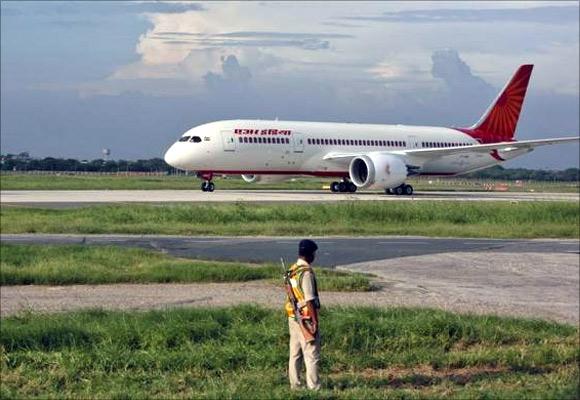
A shareholder agreement providing for an appropriate share in the management to the strategic partner would also be necessary, it had recommended.
The government was to thereafter disinvest 20 per cent of the total paid-up equity capital by offering 10 per cent to domestic institutional investors at the price paid by the highest bidder for Air India shares and the remaining 10 per cent to retail investors and employees at a discount.
This was to eventually bring the government shareholding in Air India down to 40 per cent, equivalent to the holding of a strategic partner with the remaining 20 per cent dispersed among the domestic institutional investors, employees and the public.
The DC had further suggested appointing global advisors to help conduct the strategic sale and the offer of sale.
....
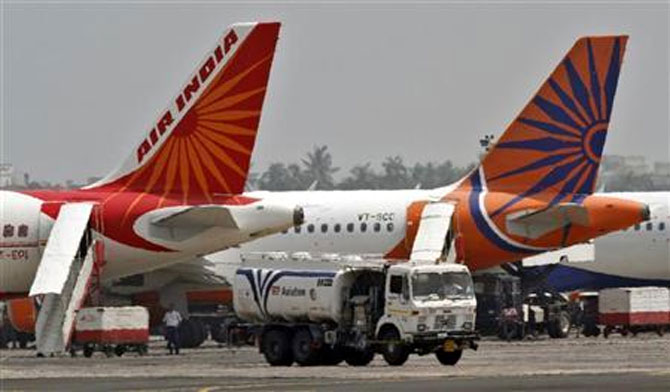
Together with the steps for strategic sales, the DC recommended that:
The maintenance, engineering and ground support operations of Air India, which were reckoned as its inherent strengths, could be hived off as separate companies.
In line with global trends then, this was to enable the airline to benefit from outsourcing these services and reduce its overheads - something that has been part of every subsequent turnaround plan.
Though it had suggested a well-knit and effective hub-and-spoke arrangement with Indian Airlines to enable Air India provide direct and convenient connectivity with all Indian airports to its customers, that structure has become irrelevant now in view of the merger of the two airlines in 2007.
It had also recommended the introduction of a voluntary retirement scheme to reduce manpower - again, a problem identified years ago but still plaguing the airline.
And finally, the DC had said: since the airline operates in a highly service-oriented industry, Air India should initiate steps to improve the quality of its service.
Even though the alarm bells had been sounded almost three decades ago for improving the service standards, neither the government nor successive managements took steps to stem the decline.
...

While the image-bashing that Air India has taken as a consequence of its failure to match service standards of other airlines is no secret, the delay in restructuring Air India can now be quantified.
It is in financial terms a minimum of Rs 30,000 crore (Rs 300 billion) committed to the airline as a bailout package in 2012.
So what could have been achieved through the infusion of only Rs 1,000 crore (Rs 10 billion) in late nineties is today costing the government 30 times more, with the accompanying uncertainty of whether even this amount would be adequate to ensure its survival.
The other loss, of course, has been in its being reduced to a marginal player in terms of market share - only one in six passengers patronising it.
The Modi government in its first 90 days hasn't really spelt out its plan for Air India except stating that it wouldn't be privatised.
As the environment in which the airline is operating has become increasingly hostile, thanks to many of government's own lopsided policies bereft of strategy and wisdom, it is desirable for the government to act swiftly.
It should learn from the dual experience of huge cost escalations for reviving Air India's fortunes on one side and increasing marginalisation on the other, lest the airline loses whatever relevance it has today and the cost of resurrecting it mounts still further - in fact, beyond what the government may like to invest to ensure its survival.